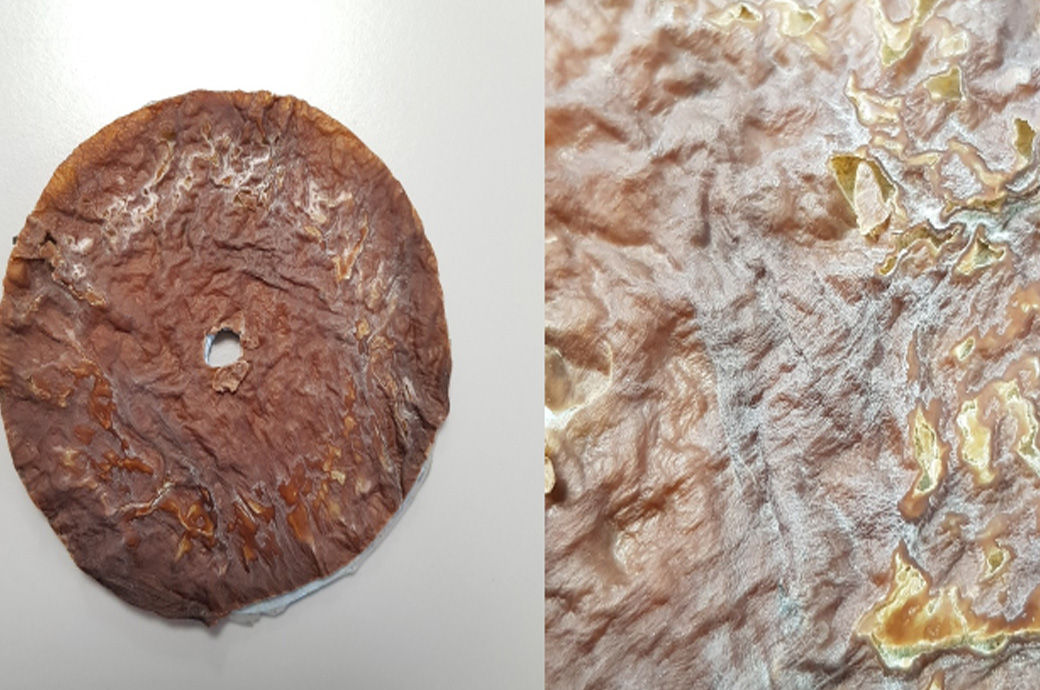
The research team also found the fabrics to be highly resistant to scuffs and scratches, making it ideal for use as protective clothing, including motorbike leathers.
The material could have other potential uses, including as absorbent medical dressings, in beauty products, and as filters.
“We can create the conditions needed to grow the material at home, so a laboratory environment isn’t necessary,” James Redfern, senior lecturer in microbiology and molecular biology at Manchester Metropolitan University, was quoted as saying in a university press release.
The kombucha-grown textile has a variety of properties that would make it an ideal alternative to conventional textiles, specifically leather, having demonstrated it is stronger, more durable and easy to mould into shape to create different garments.
The material is also compostable and in pure form, doesn’t consist of impurities usually found in textiles such as waxes and other chemicals, which are energy and chemically intensive to deal with, the study, published in Textile Research Journal, found.
However, little research has been done to assess how well the material performs in comparison to conventional textiles, particularly for use as clothing, until now.
Findings showed the home-grown BC was extremely resistant to abrasion, even more so than some animal leathers.
However, when it came to resistance to breaking under tension, the BC sheets were not as strong as conventional animal leather. BC sheets were also found to retain more moisture than other clothing materials.
ALCHEMPro News Desk (DS)
Receive daily prices and market insights straight to your inbox. Subscribe to AlchemPro Weekly!